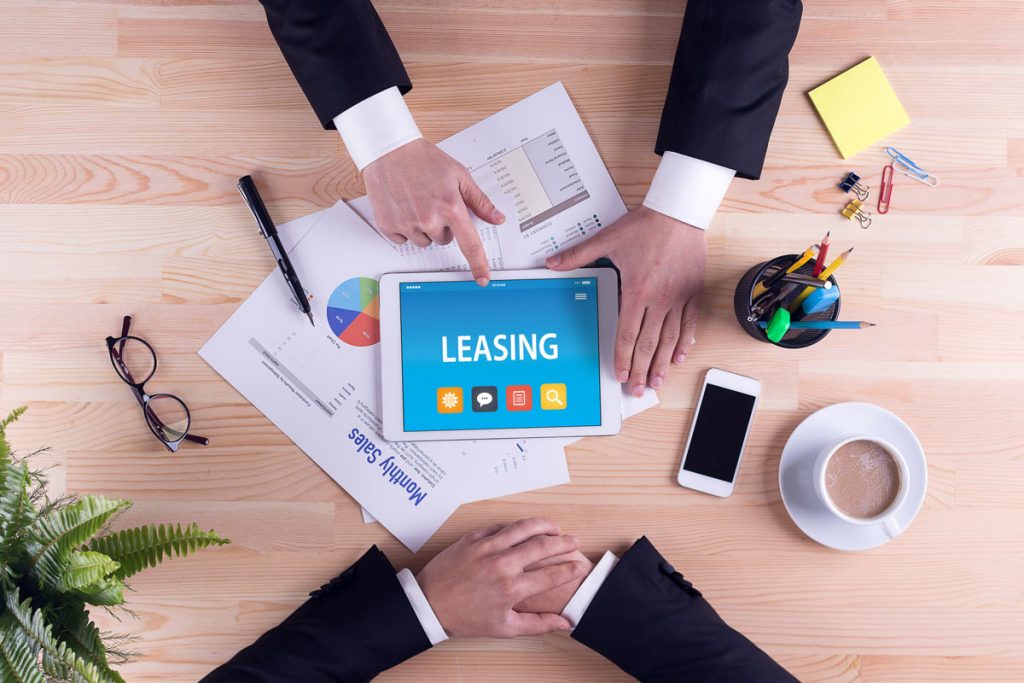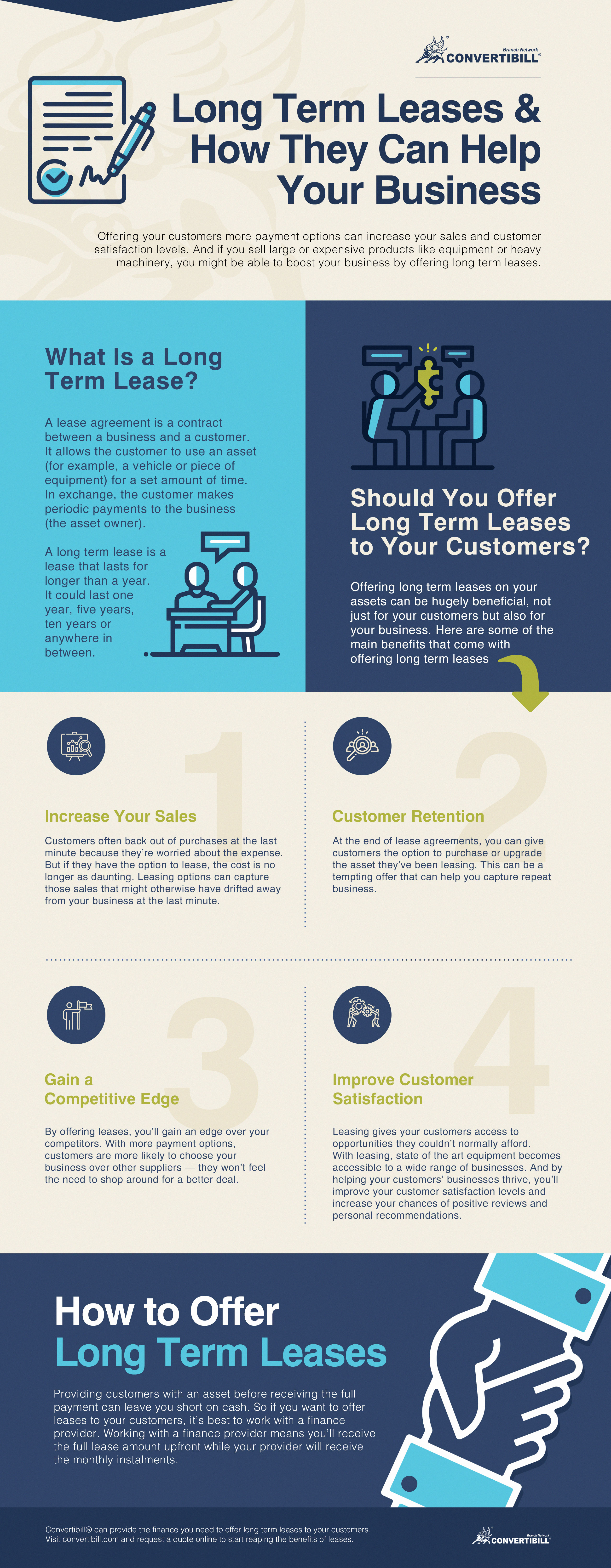Offering your customers more payment options can increase your sales and customer satisfaction levels. And if you sell large or expensive products like equipment or heavy machinery, you might be able to boost your business by offering long term leases.
Here’s everything you need to know about long term lease agreements — including what they are, who should offer them, and how to provide leases without causing your business financial strain.
What Is a Long Term Lease?
A lease agreement is a contract between a business and a customer. It allows the customer to use an asset for a set amount of time in exchange for periodic payments made to the business (the asset owner).
A long term lease is a lease that lasts for longer than a year. It could last one year, five years, ten years or anywhere in between. Vehicles and equipment are examples of assets you can lease with a long term agreement.
Depending on the agreement, at the end of the lease period, customers will usually return the asset to the business. But they may also have the option to purchase or upgrade.
Should You Offer Long Term Leases to Your Customers?
The Equipment Leasing and Finance Association estimates at least 80% of businesses lease some of their equipment. So if your business sells commercial equipment or machinery, you could consider offering long term leases to your customers.
Leasing isn’t usually worth it for smaller items with more affordable price tags. However, consumers and businesses alike are often drawn to lease larger, more expensive items.
Benefits of Long Term Leases
Offering long term leases on your assets can be hugely beneficial, not just for your customers but also for your business. Here are some of the main benefits that come with offering long term leases.
Increase Your Sales
Customers often back out of purchases at the last minute because they’re worried about the expense. But if they have the option to lease as well as buy equipment or assets, the cost is no longer as daunting.
Lease agreements involve regular (usually monthly) payments of a set amount. These instalments are more affordable for most businesses than one large upfront cost. And affordability is attractive to any customer.
Leasing options can capture those sales that might otherwise have drifted away from your business at the last minute.
Customer retention
At the end of lease agreements, you can give customers the option to purchase or upgrade the asset they’ve been leasing. This offer can be a tempting one and just what you need to capture repeat business.
Gain a Competitive Edge
It’s not every business that offers its customers long term leases. So if you do decide to start offering leases, you’ll quickly find you’ve gained a competitive edge over your competitors. With more payment options, customers are more likely to choose your business over other suppliers — they won’t feel the need to shop around for a better deal.
Improve Customer Satisfaction
By offering long term leases, you’re opening up new opportunities for your customers they otherwise couldn’t afford. With leasing, state of the art equipment becomes accessible to a wide range of businesses. And by helping your customers’ businesses thrive, you’ll improve your customer satisfaction levels and increase your chances of positive reviews and recommendations.
How to Offer Long Term Leases
If you’re considering offering long term leases to your customers, you might come across one main obstacle: cash flow. Providing customers with an asset before receiving the full payment can leave you short on cash. So if you want to offer leases to your customers, it’s best to work with a finance provider.
Working with a finance provider means you’ll receive the full lease amount upfront while your provider will receive the monthly instalments.
Convertibill can provide the finance you need to offer long term leases to your customers. Request a quote online today to start reaping the benefits of leases.



